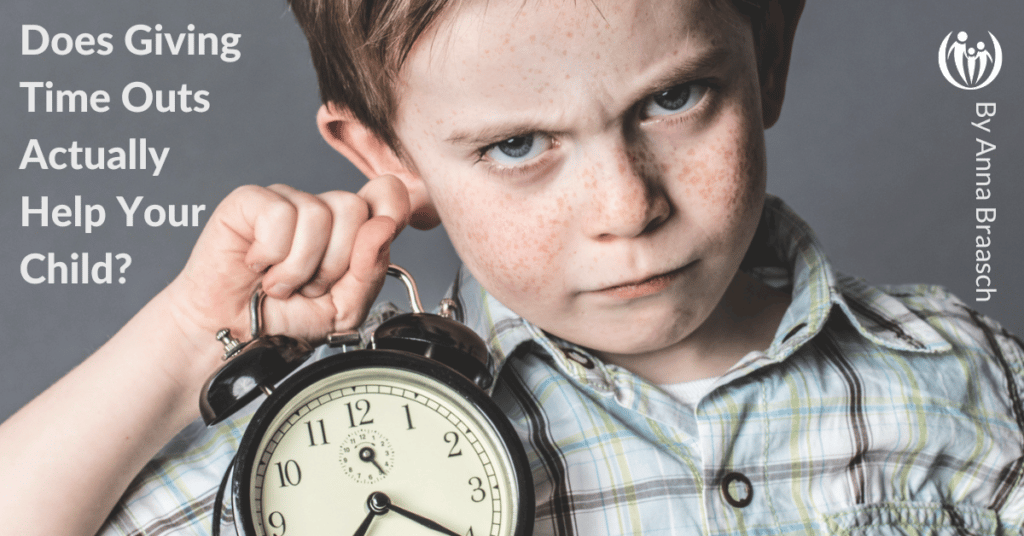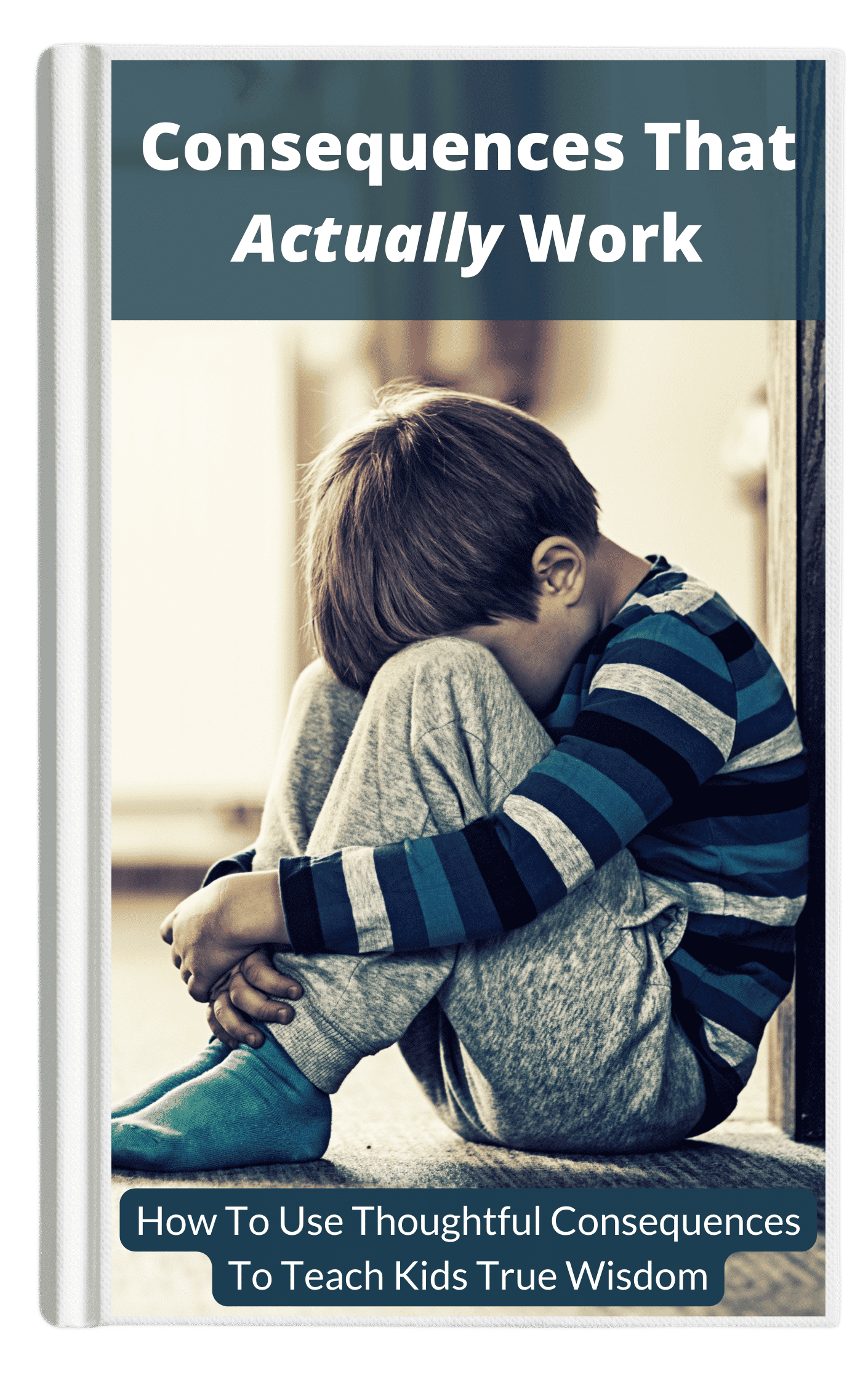
Does Giving Time Outs Actually Help Your Child?

I distinctly remember years ago sitting in a pre-adoption class through our agency and silently scoffing when the presenter suggested during discipline situations to take a “time-in” with your child rather than send them to their room for a “time-out.” What kind of wimpy parenting was this? And so I tuned out the rest of that part of the class, thinking that I knew better than adoption specialists who had researched parent-child attachment for decades.
I thought I knew best, so off we went on our merry way… ready to parent based on formulas from best-selling Christian authors, and our own history of how we were parented.
Since I started out referencing adoption, you might be ready to stop reading if you have bio kids. But at Connected Families, we’ve found that adoption-related attachment struggles are often “the canary in the coal mine” of parenting. Kids with attachment struggles are oftentimes more vocal about their angst, which brings to light what many children could be feeling but don’t have permission to verbalize.
With that said, I have a confession.
[Full disclosure: this next sentence is really hard for me to admit, but I know that there are others out there dancing the same dance with their “difficult” child. I’m writing this for you.]
I loved giving time-outs.
When our son (adopted 10 years ago at age 4 months) had behavior challenges starting around age 2, I remember being thrilled that I could put him in his crib for two minutes, turn on the kitchen timer and actually get some stuff down around the house — even if it was just unloading the dishes or answering an email. And then, if he wasn’t quiet, the timer would start over again and he’d have another two minutes, and then another. Sometimes this could last for 30 minutes or more! All the while, I was busily getting to “important” stuff around the house in between the two-minute warning bells, secretly enjoying the fact that he was extending his punishment (and my productivity) by his outbursts.
When he got a little older all the anger that had been building up inside of him hit the fan and the “not staying quiet” turned into full-blown tantrums. It was during that time that I remembered back to the “time-in” idea we learned before adopting. Maybe I did need a little help after all… It was then that we started to research how we could parent more effectively (which is how we were introduced to Connected Families).
Reflecting back on those long and ugly time-out episodes, I think about the message I was trying to send to my son versus the messages he was receiving:
The messages sent when giving time-outs to your child
Often the messages we are trying to teach by giving time-outs to our kids are not the ones they are receiving.
The message I was trying to send:
- I want you to learn how to be kind and respectful (especially toward me).
The messages he was believing about himself (and me):
- My mom is so tired, she just wants me “put away” for a while so she doesn’t have to deal with me (and can do more important things, like fold laundry).
- My mom doesn’t think I am worth disciplining well. She is only looking for fast and easy.
- My mom doesn’t care about my heart — she just cares about my behavior.
While I know my son couldn’t verbalize these things at age 2, they did begin to build his identity and what he believed about himself, and what he thought about me. Clearly, not the messages that I wanted him to receive!
As we began to put in practice the principle “You are SAFE With Me” I realized that more than he did, I needed a time-out. So instead of, “go to your room!” it became, “Mommy is feeling frustrated right now. I need to spend a few minutes praying in my room before I talk with you about what just happened.”
As we began to consciously build into him the message “You are LOVED no Matter What” we put energy into connecting with him during tough discipline times, rather than pushing him away.
As we began to build his confidence through the message of “You are God’s Workmanship, CALLED and CAPABLE” we started to ask questions of him such as, “It looks like you’re pretty upset. Do you need a break?” or “What do you need to calm down?”
And then as we held him to high accountability with the message “You are RESPONSIBLE for your actions”, we’d ask questions such as “How will I know when you’re ready to make this right? How will you know?” with the understanding that privileges would be withheld until he reconciled well with those he hurt.
The message he is now receiving (at least the majority of the time) is that he is totally worth our time and energy to discipline well and thoughtfully. And when I occasionally snap and send him to his room in anger, we now have the foundation built that we can work through how I got to that place (allowed my buttons to get pushed? yes. prayed before speaking? no.) and what I want to do to make things right with him.
If you’re reading this thinking, “But time-outs ‘work’ for us. Why do we need to do things differently?” I would challenge you to think about what “works for us” looks like. Does that mean compliance? If so, is it compliance with a humbled and contrite heart — or is it compliance with bitterness and resentment building under the surface? There might be a few kids where a few minutes alone in a room gives them time and space to feel the weight of their misbehavior and they join the family again ready to make amends. But not all kids will react that way to time-outs, and it’s worth considering if this often-used consequence is actually communicating the message you think it is.
Apply it now:
- Step back — out of the heat of the moment — and think about what messages you want to send to your kids. (Read Discipline That Connects With Your Child’s Heart to learn more)
- Thoughtfully consider how time-outs build up or tear down those messages and your relationship with your kids.
- If time-outs have been your mode of operation for years, get your kids’ input: call a family meeting and talk about the effectiveness of time-outs. “How do you think time-outs are going in our family? We have some ideas of how we’d like to do things differently, but we want to hear from you first. When you’ve acted disrespectfully what ideas do you have to make things right with those you’ve wronged?” (TIP: our family meetings always include ice cream, so now often my kids ask if we can have a family meeting!
Because your kids aren’t perfect. Neither are you. That’s why you need a plan for discipling your kids in the hard moments.


